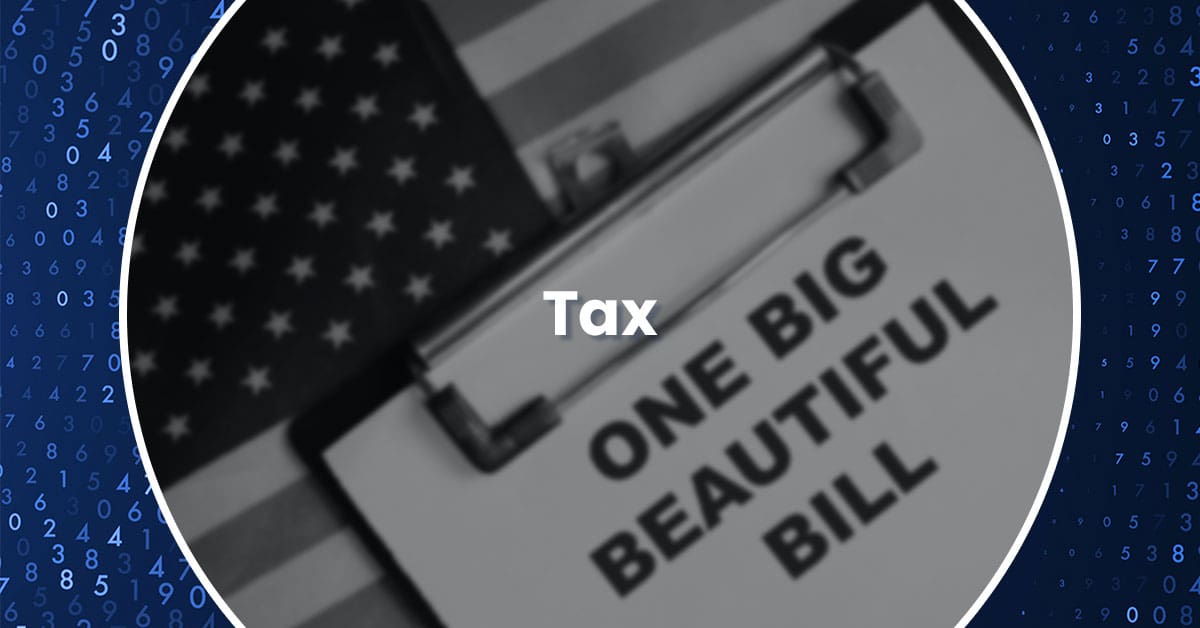The One Big Beautiful Bill Act (OBBBA) has permanently reshaped the federal estate, gift, and generation-skipping transfer (GST) tax landscape. As of 2025, the exemption stands at $13.99 million per individual and $27.98 million for married couples.
Beginning January 1, 2026, OBBBA has increased the estate tax exemption 2026 to $15 million per person and $30 million per married couple, with future adjustments indexed for inflation.
The increased exemption under OBBBA is considered “permanent,” with no scheduled sunset. However, permanence in tax law is often subject to political shifts. As priorities change with each new administration, there’s no guarantee these favorable exemptions will remain intact. This uncertainty underscores the importance of proactive and strategic estate planning while the opportunity lasts.
With the end of year approaching and the focus is on year-end planning, a common question surfaces: “With today’s new higher exemption amounts, is estate planning still necessary?”
While federal exemptions have increased, the fundamental purpose and value of estate planning remain unchanged. In fact, the recent legislative updates make this an especially opportune moment to revisit planning strategies.
With higher exemptions and a window of relative certainty, now may be one of the most advantageous times to take action. Let’s talk about what this means for your estate plan and where the real opportunities lie.
Planning for the ~$15 Million Estate Tax Exemption 2026
Focus on Growth and Appreciation
If you’re sitting on assets that are growing in value, think about business interests, real estate, investment portfolios. The strategy here is classic: transfer appreciating assets now while you can use the higher exemption amounts and get that future growth out of your taxable estate. Time is a powerful tool for estate planning.
Here’s why that matters. Let’s say you gift $10 million worth of business interests today using your exemption. If that business grows to $25 million by the time you pass, that extra $15 million in appreciation stays out of your estate, free of estate tax. You’ve essentially locked in today’s lower valuation and removed decades of growth from the tax calculation.
The families who come ahead are the ones who move early on high-growth assets. Waiting means you’re gifting (or leaving behind) a larger amount, and potentially facing estate tax on appreciation you could have avoided.
Review Your Existing Plan
Even if you set up trusts, made gifts, or created a solid estate plan in recent years, it’s worth a fresh look. Tax law changes, family circumstances shift, and asset values move over time. What made sense before OBBBA might not be optimal today.
Building Flexible Estate Planning Strategies
One lesson we’ve learned through decades of tax law changes: flexibility wins. You want structures that can adapt as laws shift, family needs change, and asset values fluctuate.
Consider tools like:
- Intentionally Defective Grantor Trust ( IDGTs) – You can freeze the value of gifted assets in your estate while continuing to pay income taxes on the trust’s earnings, effectively making additional tax-free gifts every year.
- Spousal Lifetime Access Trusts (SLATs) – A SLAT is an IDGT that names the grantor’s spouse as a beneficiary. These allow you to move assets out of your estate while keeping indirect access through your spouse. They’re powerful, but they require careful drafting to avoid pitfalls (especially if both spouses create them).
- Dynasty trusts – With the higher GST exemption also extended, you can fund trusts that benefit multiple generations while staying outside the estate tax system for decades.
- Family limited partnerships or LLCs – These remain valuable for business owners and real estate investors, allowing you to transfer interest at discounted values while maintaining control.
The key is building flexibility. Include provisions for changing beneficiaries, adapting distribution terms, and responding to future tax law changes. IDGTs and SLATs can provide the grantor with the ability to “swap” trust assets for their own assets of equivalent value which is particularly valuable for income tax planning.
Beyond tax savings, many of these strategies can provide protection from creditors and other legal claims. Nobody has a crystal ball, but your plan can be built to bend without breaking.
Shift to Income Tax Efficiency for Some
Here’s where planning gets interesting. With estate tax exemption 2026 high, some families may find they’re no longer in estate tax territory, but they still have income tax concerns.
If your estate is comfortably under $15 million (or $30 million as a couple), your focus might shift from estate tax reduction to income tax efficiency. That means:
- Holding onto highly appreciated assets to take advantage of step-up in basis at death (yes, this still exists under current law)
- Structuring trusts to provide flexibility around income tax brackets
- Timing asset sales and distributions with an eye toward capital gains rates
The math changes when the estate tax isn’t the primary concern. You might actually want assets in your estate to get that step-up on a basis, rather than gifting them away.
Consider State Estate Taxes
Don’t forget federal exemptions aren’t the whole story. Many states have their own estate or inheritance taxes with much lower exemption thresholds.
States like New York, Massachusetts, Connecticut, Oregon, and others impose estate taxes starting at exemptions well below the federal level, sometimes as low as $1 million. If you live in one of these states (or own property there), you need a plan that addresses both federal and state exposure.
Some strategies to consider:
- Changing domicile if you’re in a high-tax state and have flexibility
- Lifetime gifting to avoid state-level estate taxes in the future. (Connecticut is the only state that imposes a gift tax as well as an estate tax currently).
- Using trusts that remove assets from your state estate while preserving access
State tax planning isn’t one-size-fits-all. Your residency, where your assets are located, and your family’s circumstances all matter.
Proactive Planning Is the Difference
Here’s what we see repeatedly: the families who do best aren’t the ones who react to tax law changes in a panic. They’re the ones who plan proactively with an eye toward flexibility and long-term goals.
That means:
- Running projections based on different exemption scenarios
- Stress-testing your plan against changes in asset values, family circumstances, and tax law
- Building in review cycles, ideally annually or whenever major life events occur
- Working with advisors who see the full picture: tax, legal, financial, and family dynamics
The OBBBA extension gives you time. Use it wisely.
The Bottom Line
OBBBA bought us time—but it didn’t eliminate the need for thoughtful estate planning. If anything, the extended higher exemptions create an opportunity to be strategic without feeling rushed.
Here’s what matters most:
- Use the estate tax exemption 2026 while you have it. We don’t know how long the higher amounts will last. If you have significant wealth or appreciating assets, now is the time to act.
- Build flexibility into your plan. Tax laws change. Family circumstances change. Your plan should be able to handle both.
- Don’t forget state taxes. Federal exemptions are only part of the equation.
- Work with advisors who get it. Estate planning isn’t just about taxes. It’s about family, legacy, and long-term goals. You need a team that sees all of it.
We’ve worked with business owners and families through decades of tax law changes. The key is having a plan that’s both strategic for today and adaptable for tomorrow. OBBBA changed the timeline—now let’s make sure your plan reflects that.
Want to explore what OBBBA means for your estate plan? Talk to our team today about your specific situation and let’s build a strategy that makes sense for your family and your goals.
This article is for informational purposes only and does not constitute tax, legal, or financial advice. Estate planning involves complex tax considerations that vary by individual circumstances. Consult with qualified advisors before making decisions.





 Previous
Previous





